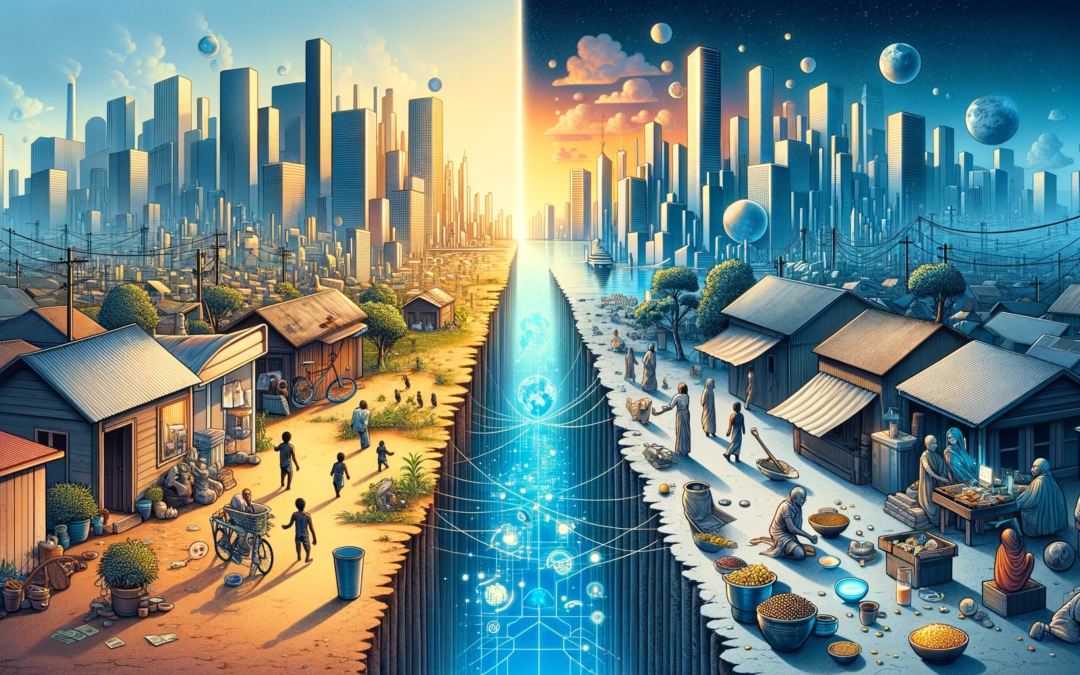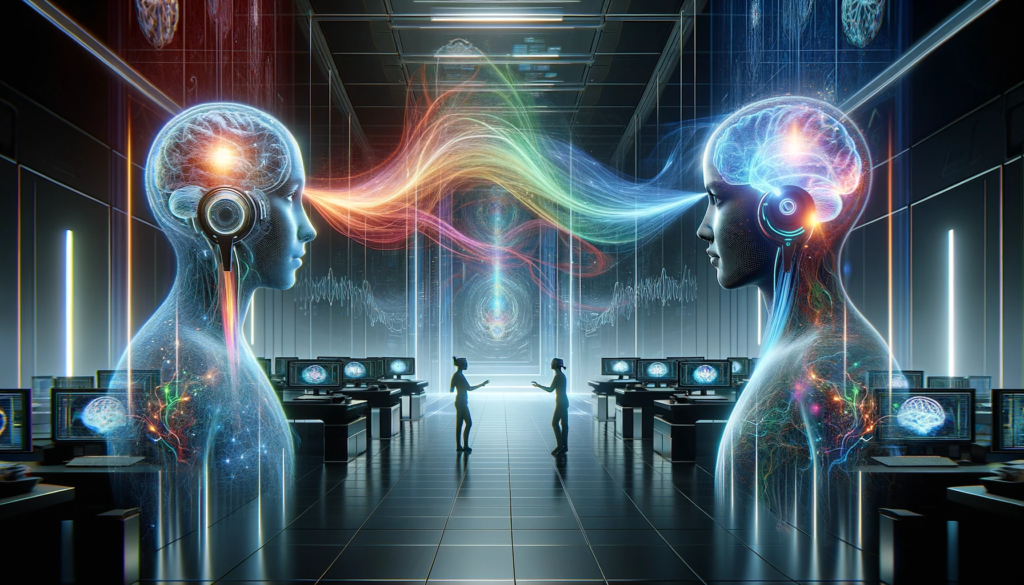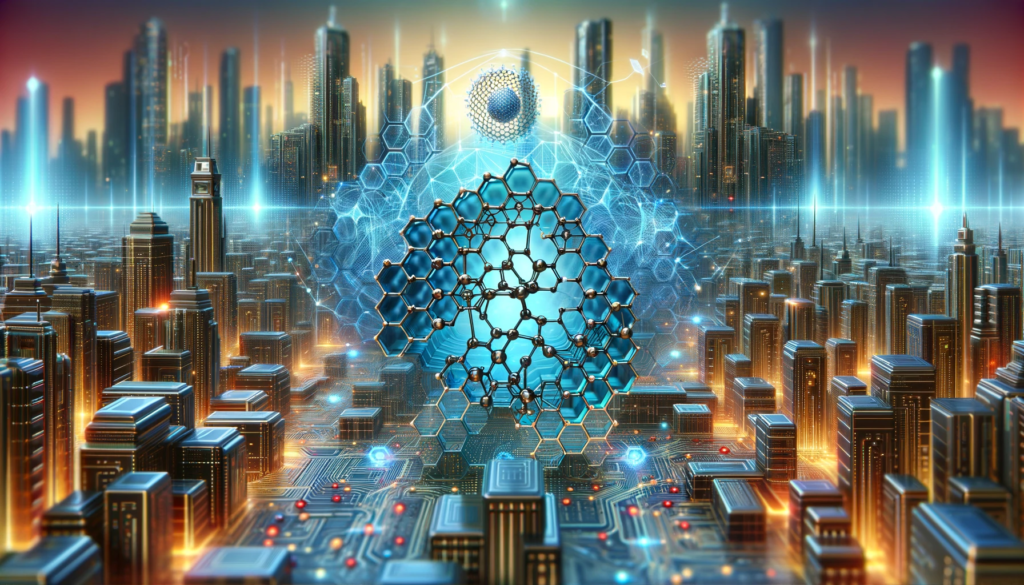The rapid advancements in artificial intelligence (AI) have the potential to revolutionize our world, but they also come with a dark side. As we embrace AI and automation, there is a growing concern that these technologies could exacerbate global inequality, both within and between nations. In this blog post, we will explore how AI could widen the gap between the rich and the poor, and between developed and developing countries.
AI and Economic Disparity
One of the main ways AI could contribute to global inequality is through job displacement. As AI and automation take over tasks that were previously performed by humans, low-skill workers are at risk of losing their jobs. The benefits of these advancements are likely to be concentrated in the hands of those who control the technology, widening the economic divide between the wealthy and the rest of society. We could be looking at a new class divide, where access to AI technologies dictates economic opportunities.
Impact on Developing Nations
Developing countries face numerous challenges in keeping pace with AI advancements. Lack of infrastructure, education, and investment make it difficult for these nations to fully embrace AI. As a result, the AI divide between developed and developing nations could widen, leading to increased global inequality. The gap between those who have access to AI and those who do not could become insurmountable, further marginalizing the most vulnerable populations.
Social Consequences
The consequences of AI-driven inequality go beyond economic disparity. The increased poverty resulting from job displacement could lead to social unrest and exacerbate existing societal divisions. Moreover, access to essential services like healthcare and education could be influenced by AI, deepening inequalities and leaving the most vulnerable populations behind. The social fabric of our society is at stake if we do not address these issues.
Ethical Considerations and Policy Responses
As we navigate the AI era, it is crucial to consider the ethical implications of AI development and deployment. We need policies and initiatives that ensure equitable AI development, such as inclusive AI education programs and the equitable distribution of AI benefits. Governments, international organizations, and the private sector all have a role to play in fostering inclusive growth and preventing further inequality in the AI age.
Strategies for Bridging the Divide
To mitigate AI-driven inequality, we need a multi-faceted approach. International cooperation is essential to ensure that AI development benefits all nations, regardless of their level of technological advancement. Investment in human capital, particularly in education and skills development, is crucial to empower individuals to thrive in the AI-driven economy. Additionally, we must encourage the development of AI for social good, leveraging these technologies to address societal challenges and bridge the gap between the haves and the have-nots.
Conclusion
The potential for AI to exacerbate global inequality is a pressing issue that requires our attention. As AI continues to advance, we must ensure that its benefits are shared by all, rather than concentrating wealth and power in the hands of a few. By fostering inclusive and ethical AI development, we can leverage these technologies for equitable and sustainable growth, narrowing the gaps that threaten to divide our world.
Join the conversation: How do you think we can address the potential for AI to exacerbate global inequality? Share your thoughts in the comments below!
Visual Elements:
– Include impactful images that reflect the themes of AI-driven economic disparity and global inequality.
– Use infographics to illustrate the disparities in AI development and access across different regions and socio-economic groups.
Meta Description:
Discover how the rapid advancements in AI could widen the gap between the rich and the poor, and between developed and developing countries, exacerbating global inequality. Explore the challenges faced by developing nations, the social consequences of AI-driven inequality, and strategies for bridging the divide in this thought-provoking blog post.










